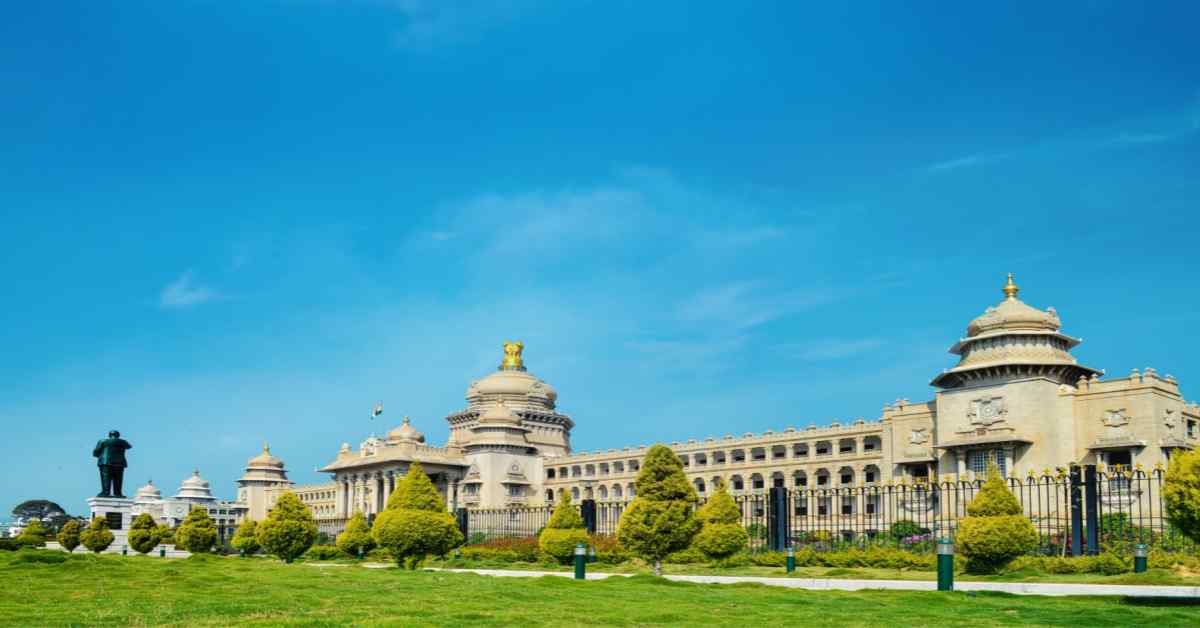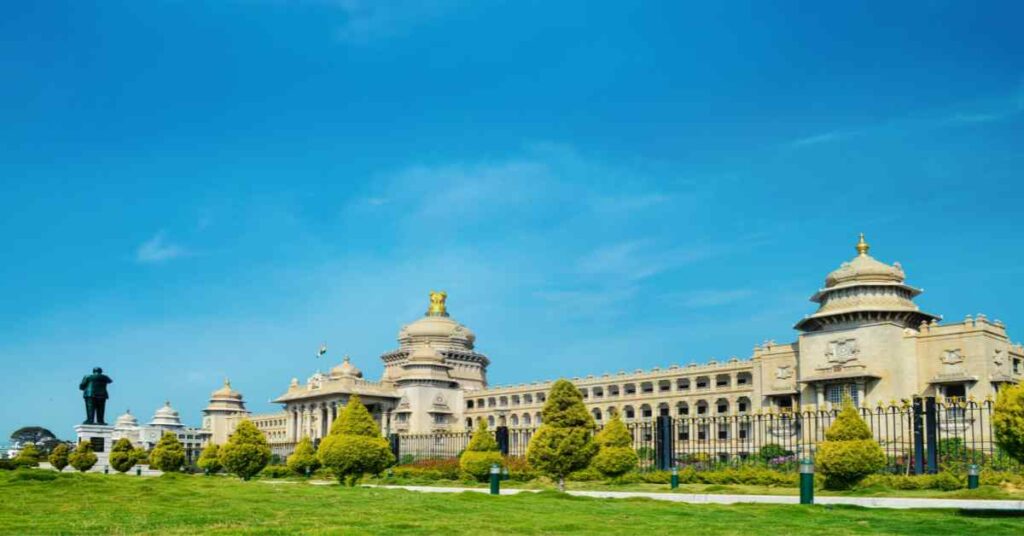Karnataka Municipal Election Results:Everything You Need to Know


Understanding the results, the winning candidates, their policies, and the voting process can help the citizens make sense of the election outcome and its impact on their local communities.
This guide will provide valuable information and insights on the election results, helping the readers stay informed and understand the implications of the outcome on their local communities.
Associated Political Parties in Karnataka
The state’s leading parties are BJP, INC, and JD(S). The other politically active groups in the state are the CPI, CPI(M), and MES. The multiple JP and JD forerunners and the JD(S) have all had significant historical impacts.
Splinter organisations, including KCP, KJP, BSR Congress, Lok Shakti, and JD(U), have made their presence felt in a few elections. The Indian National Congress (Organisation) (NCO), Bharatiya Janata Sangh, Kisan Mazdoor Praja Party (KMPP), National Development Party, Praja Socialist Party (PSP), Samyukta Socialist Party (SSP), and Swatantra Party are a few former parties that have influenced the state.
Karnataka Municipal Corporation’s Total Seats
In the Karnataka MLC Elections 2021, the Bharatiya Janata Party (BJP) claimed victory. Out of the 25 seats up for election, the BJP won 12 of them; the Congress won 11, the JDS won one, and the other parties each managed to win one. Voting for the bi-annual election of the 25 seats in the Karnataka Legislative Council from the 20 Local Authorities’ Constituencies took place on December 10 for those who weren’t registered to vote.
There were 90 contestants, 20 from the BJP, 20 from the Congress, 6 from the JD(S), 33 independents, and the other candidates from tiny parties. Just one lady is running among the contestants. Elections were required since the terms of 25 existing MLCs—14 from the Congress, seven from the BJP, and four from the JD(S)—will expire on January 5 of the following year.
Karnataka Municipal Corporation Winner List
- S Ravi, a Congress candidate, triumphs in Bengaluru Rural. Ramesh Gowda of the JD(S) has been defeated.
- Channaraj Hattiholi of the Congress wins the Belgaum district.
- BJP candidate HS Gopinath in Bengaluru city defeated Yusuf Sharif, the richest candidate in the MLC elections, to win by a resounding victory. Scrap Babu, also known as Yusuf Sharif, disclosed assets totalling Rs. 1,744 crores.
- BJP is in the lead on 12 seats, Congress is ahead on 9, while JDS is in the lead in one district.
- Mandya MLC seat won by a candidate for Congress.
- MK Pranesh of the BJP wins the Chikmagalur MLC seat.
- Anil Kumar, a Congress contender, is elected to the Kolar MLC seat. By 425 votes, he outperformed Venugopal, the BJP candidate.
- Salim Ahmed of the Congress wins Dharwad.
- YM Satish of the BJP triumphs in Bellary.
- N Rajendra, a congressman, is elected to the Tumkur MLC position.
- Candidate for Congress wins in Mysuru
- Son of former legislative council chair DH Shankaramurthy and BJP candidate in Shivamogga, DS Arun, won the election.
- Suraj Revanna, a JDS candidate, won the Hassan election. He won by more than 1,000 votes over his closest challenger, a candidate for Congress.
- Suja Kushalappa, the BJP’s Kodagu contender, wins.
Karnataka Municipal Data Society (KMDS)
A registered society in Karnataka is the Karnataka Municipal Data Society (KMDS). It was established in 2007–2008 with a clear set of goals for e-governance to improve Urban Local Bodies by the Directorate of Municipal Administration (DMA) of the Urban Development Department (UDD), Government of Karnataka.
With different project partners, the Municipal Reforms Cell coordinates. The Municipal Reforms Cell built a state-level Municipal Data Center, and a single database of all the ULBs is maintained.
The IT specialists of the Municipal Reforms Cell, officially chosen by the Department and hired directly from the market, manage the whole process of rolling out municipal applications for ULBs.
Municipal Changes Cell assists ULBs in the implementation of automatization reforms and ongoing maintenance of the same. The cell is also tasked with Municipal employee capacity building and training.
Important Aims and Objectives of KMDS
The objectives of KMDS are as follows:
- To improve the efficiency of urban municipal government through electronic governance.
- They are hosting the database and application servers for the urban local bodies or making arrangements for their hosting.
- To retain or make arrangements for holding the data of the urban local bodies in trust and to offer, or to make arrangements for offering, all security and backup services per industry-accepted standards.
- To organise or offer assistance with connection and related problems.
- To offer or arrange for technical assistance for the urban local bodies’ apps to run.
- Create the improvements to the current apps, or make plans to create them, if required.
- Creating new modules for municipal e-government or making plans to create new modules.
- By serving as the primary repository for all digitised maps of member institutions and utilities relevant to the urban environment to provide specific support for the member institutions. Additionally, to offer—or make arrangements for—the provision of a gis lab facility with a spatial data centre that can monitor the need for frequent updates to all member institutions’ maps.
- To establish or coordinate standards for the business processes of urban local bodies re-engineering.
- For the government to do data aggregation of common data.
- Design the updates to the current applications, or make arrangements for design enhancements as and when required.
- Give member institutions it and system-related guidance.
- To integrate the purchased software into the system and manage upgrades and releases.
- To enhance the ability of staff at member institutions in e-governance, it is necessary to organise training and travel abroad.
- With any other society, institute, or organisation whose goals are entirely or partially the same as the society’s goals, join with them and merge with them.
- To take any additional legal action that will help achieve the goals mentioned above or will be beneficial.
- To research e-government challenges or provide funding for such initiatives.
- To sign, execute, and provide any necessary promises and acts to achieve the goals mentioned above.
FAQ’s
The mayor is the leader of the municipal corporation, although, in the majority of the states and union territories of India, the Municipal Commissioner has administrative authority; hence the mayor’s position is mostly ceremonial.
According to the 74th Amendment to the Indian Constitution, the Karnataka government has established the rules for municipalities. Consequently, there are now 10 City Corporations, 59 City Municipal Councils, 116 Town Municipal Councils, and 97 Town / Pattana Panchayats in Karnataka.
Every state has three different sorts of municipalities based on size and area.
Nagar Panchayat for a region transitioning from a rural to an urban location)
Municipal Council for a smaller urban area;
Municipal Corporation for a bigger urban area.
Bengaluru Division, Mysore Division, Belagavi Division, and Kalburgi Division are the four Revenue Divisions that make up the state of Karnataka.
Belagavi is Karnataka’s biggest district by area. It covers an area of around 13,400 square kilometres. It is also one of the largest districts that shares a border with Maharashtra state.